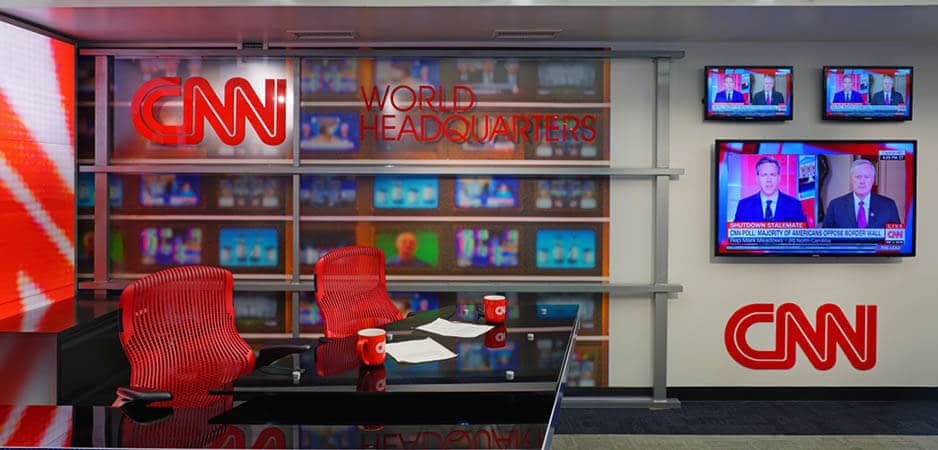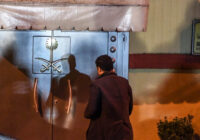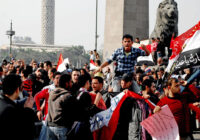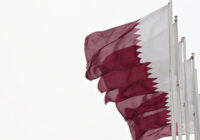Saudi Arabia hosted a triple summit to consolidate and unify the policy of Arab nations in building opposition to Iran. CNN applauds its convergence with Donald Trump’s foreign policy.
Reporting on the emergency summit Saudi Arabia organized to rally other Arab nations to its increasingly obsessive cause — the ostracism, if not annihilation of Iran — CNN’s Nic Robertson judges the event an unequivocal success for King Salman and the Saudi regime. Impressed by the fact that the participants agreed to sign the statements prepared by the Saudis, Robertson echoes the sentiments routinely expressed by US Secretary of State Mike Pompeo and National Security Adviser John Bolton. “Tehran appeared tone-deaf to not one, but two unifying summit communiques urging it to change its behavior,” he writes.
Here is today’s 3D definition:
Unifying:
Achieving the adhesion of a number of individuals or groups to a given position or cause, whether voluntarily, through natural empathy and convergence of interest, through the persuasion of cogent arguments or through wanton bullying based on economic, military or moral coercion
Contextual note
Al Jazeera’s senior political analyst, Marwan Bishara, offered a somewhat different and more nuanced assessment of the summit’s outcome: “By the end of the meetings, Saudi efforts to put diplomatic pressure on Tehran paid off, at least on paper.”
Robertson’s description of Tehran’s critique as “tone-deaf” seems curious, to the point of sounding tone-deaf itself. In the preceding sentence he claims that Iranian leaders “hit back, criticizing the allegations as ‘baseless’ and accusing Saudi Arabia of promoting an ‘American and Zionist’ agenda.” Robertson, who is CNN’s international diplomatic editor, presumably considers the use of the word “Zionist” as tone-deaf because in US political culture today, mentioning Zionism is routinely branded anti-Semitic.
But, according to Reuters, Robertson’s description of what the Iranians said isn’t quite accurate: “We see the Saudi effort to mobilize (regional) opinion as part of the hopeless process followed by America and the Zionist regime against Iran.” Would anyone deny that Israel’s regime is Zionist? Does referring to it as Zionist qualify as “tone-deaf”?
Iran’s statement accurately describes the events playing out today, though whether the process is “hopeless” or not depends on how far the US, the Saudis and Israel are prepared to go to achieve their goal. The Saudis are definitely mobilizing regional opinion, and it is part of a process followed by the US and Israel to “confront and isolate Iran,” to quote Bishara. Does Robertson really expect that, having read the reproaches signed by the members of the summit, the Iranian government will “change its behavior” and decide to comply with the dictates of Saudi Arabia? Any serious observer of the Middle East knows that such an expectation is delusional, even if it correctly reflects the official logic of the Trump administration’s agenda.
Robertson’s rhetoric becomes even murkier when he writes: “It would be easy to write the King’s success off as the kind of leverage that only petro-dollars can buy, but the region is deeply divided over many issues — not least a searing rift with neighboring Qatar, which has spent two years under an economic and travel embargo imposed by Saudi Arabia.”
It would indeed have been easier as well as more accurate simply to mention the effect not just of petro-dollars, but also of the power of the US to intimidate nations such as Jordan and Morocco. Refusing to beat around the bush, Bishara calls it “bullying, blackmailing and bribing Arab countries into submission, and allying with outside forces, namely the US and Israel.”
Historical note
Marwan Bishara sees CNN’s conclusion — that the summit, with its aim of “uniting the Arabs against Iran,” was an unmitigated success — as the preferred reading in “certain Western circles.” Robertson paints this as a historical turning point, marked by the “reemergence of Saudi Arabia from pariah to regional power broker again, which is good timing for its key ally, US President Donald Trump, as he doubles down on sanctions and pressure on Iran.” Robertson even suggests that this in some way exonerates Saudi Arabia after the scandalous murder of Saudi journalist Jamal Khashoggi. Why? Because the king (he doesn’t mention Crown Prince Mohammed bin Salman) has now provided “proof that he at least has clout.” In US culture, clout settles all questions and is all that really counts.
Bishara nevertheless noticed a few important things that Robertson failed to pick up on. For example, referring to the fact that it was billed as a triple summit, Gulf, Arab and Muslim, he writes: “Riyadh’s manipulation of the agenda priorities was so apparent and so preposterous that it prompted some to ridicule its “attend-one-get-two-free” stunt in Mecca.” He also mentions that Iraq and Syria rejected the final statement and Qatar expressed its reservations. Does that merit calling it a “unifying” event?
 We also learn, in contrast to Robertson’s claim of total success, that “Riyadh failed to get the OIC [Organization for Islamic Cooperation] to condemn Tehran directly in the final communique.” Bishara goes further to undermine CNN’s reading of the outcome when he writes: “The GCC and the Arab League are more divided and weaker than ever, thanks in no small part to Saudi manipulation of their agendas to serve its own narrow interests and those of its allies.” He also points out that “the Gulf wars and the crackdown on popular upheavals have drastically debilitated much of the Arab region,” seriously diminishing its political and moral clout. Even if much of the Arab world could be united behind a policy dictated by Saudi Arabia, it wouldn’t carry the weight that it did, for example, in 1973, with the creation of the Organization of the Petroleum Exporting Countries (OPEC).
We also learn, in contrast to Robertson’s claim of total success, that “Riyadh failed to get the OIC [Organization for Islamic Cooperation] to condemn Tehran directly in the final communique.” Bishara goes further to undermine CNN’s reading of the outcome when he writes: “The GCC and the Arab League are more divided and weaker than ever, thanks in no small part to Saudi manipulation of their agendas to serve its own narrow interests and those of its allies.” He also points out that “the Gulf wars and the crackdown on popular upheavals have drastically debilitated much of the Arab region,” seriously diminishing its political and moral clout. Even if much of the Arab world could be united behind a policy dictated by Saudi Arabia, it wouldn’t carry the weight that it did, for example, in 1973, with the creation of the Organization of the Petroleum Exporting Countries (OPEC).
In other words, the “unifying summit” was unified by its window dressing and little more; in Bishara’s words, “a collection of PR stunts that neither alters the balance of power, nor changes matters on the ground… fake unity.” CNN’s Robertson was impressed by the signatures of so many delegates on the declarations, but issuing “condemnation with no power and no strategy to back them up is like issuing bad checks.”
Bishara believes that “Saudi Arabia outsourcing its Iran problem to Washington will prove disastrous for the region.” Robertson and CNN hadn’t even noticed that side of the issue because they want their readers to believe that — unlike Russia and the 2016 US presidential election — there is no collusion between Trump and Saudi Arabia, simply a natural convergence of interests. It’s all about simple commerce: oil on one side, arms on the other. You sell me this and I’ll sell you that. CNN’s video in the article’s web page explains the history of US-Saudi relations in precisely those terms. It’s just the basic rule of good, honest capitalism, nothing complex. Business as usual, win-win.
The rule that applies everywhere, except in Iran, the only nation in the world now to sponsor terrorism, something no Saudi would ever think of engaging in, unless we call murdering a journalist in an overseas consulate an act of terrorism. But that would be unfair because, as Mohammed bin Salman and his spokespeople have explained, it was just some sort of misunderstanding about a mission, or something like that.
*[In the age of Oscar Wilde and Mark Twain, another American wit, the journalist Ambrose Bierce, produced a series of satirical definitions of commonly used terms, throwing light on their hidden meanings in real discourse. Bierce eventually collected and published them as a book, The Devil’s Dictionary, in 1911. We have shamelessly appropriated his title in the interest of continuing his wholesome pedagogical effort to enlighten generations of readers of the news.]
The views expressed in this article are the author’s own and do not necessarily reflect Fair Observer’s editorial policy.
Support Fair Observer
We rely on your support for our independence, diversity and quality.
For more than 10 years, Fair Observer has been free, fair and independent. No billionaire owns us, no advertisers control us. We are a reader-supported nonprofit. Unlike many other publications, we keep our content free for readers regardless of where they live or whether they can afford to pay. We have no paywalls and no ads.
In the post-truth era of fake news, echo chambers and filter bubbles, we publish a plurality of perspectives from around the world. Anyone can publish with us, but everyone goes through a rigorous editorial process. So, you get fact-checked, well-reasoned content instead of noise.
We publish 2,500+ voices from 90+ countries. We also conduct education and training programs
on subjects ranging from digital media and journalism to writing and critical thinking. This
doesn’t come cheap. Servers, editors, trainers and web developers cost
money.
Please consider supporting us on a regular basis as a recurring donor or a
sustaining member.
Will you support FO’s journalism?
We rely on your support for our independence, diversity and quality.






